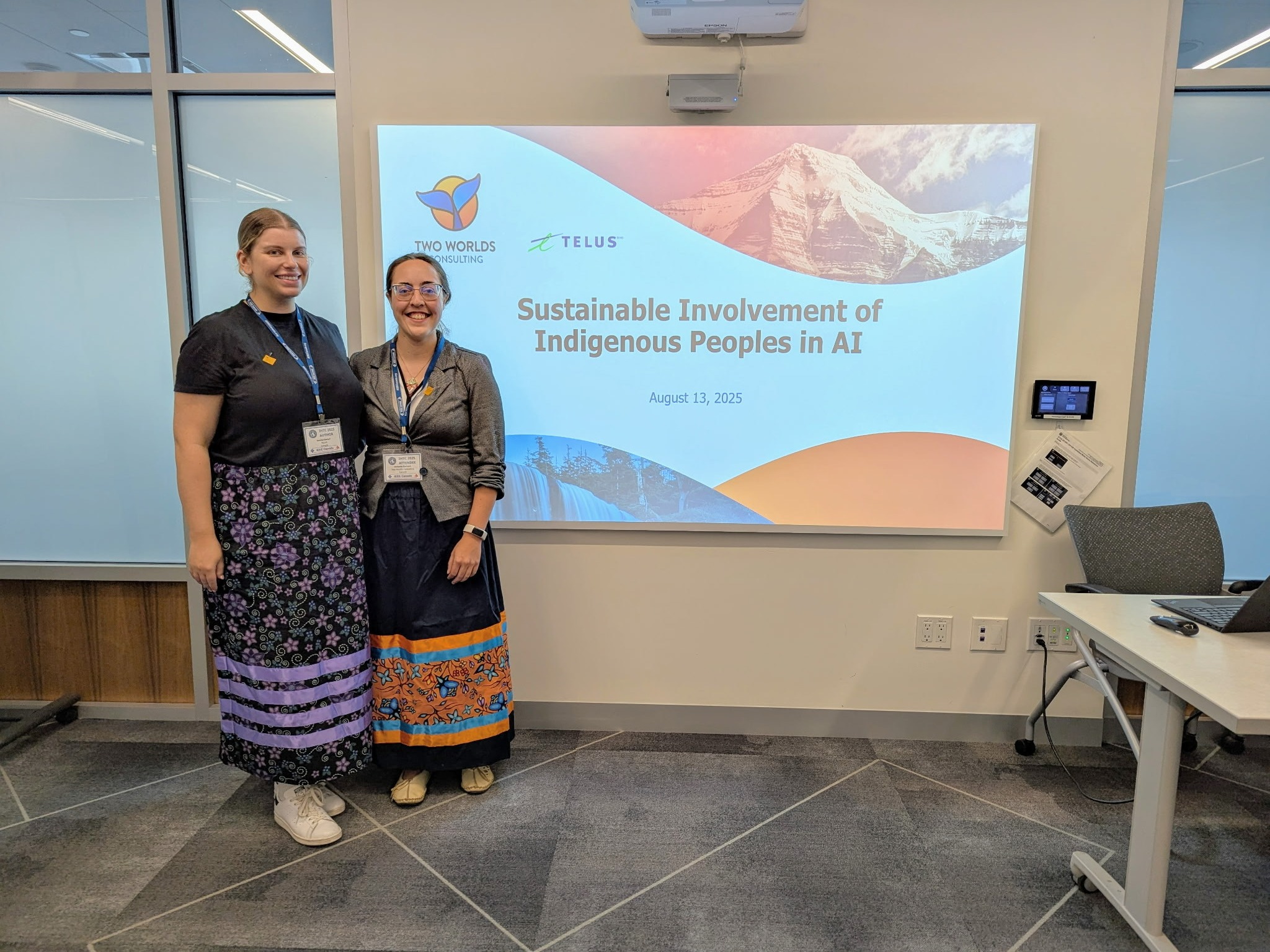
Connecting Canada
Mobility for Good: Samidha's story
Oct 13, 2020
(Above) Samidha’s childhood was far from easy, but she has always chosen to look forward and make education her priority. The TELUS Mobility for Good program helps keep her connected to the people, resources, and services she needs to make her dreams come true. PHOTO BY KAREN MACKENROT
By anyone’s definition, Samidha is an impressive individual.
At 21, she is a fourth-year student at Hamilton’s McMaster University, studying philosophy and business. She recently received a prestigious McCall MacBain Scholarship that will fund her studies abroad next year. She plans to spend a year in Egypt where she hopes to learn Arabic -- her third language, in addition to English and Hindi.
When she’s not studying, Samidha is active in the McMaster community, practices the
self-defence techniques known as Krav Maga, and volunteers with marginalized children and youth as an ambassador with the Children’s Aid Foundation of Canada.
self-defence techniques known as Krav Maga, and volunteers with marginalized children and youth as an ambassador with the Children’s Aid Foundation of Canada.
But it’s the opportunity to improve the lives of others through education that truly resonates with her goals.
“If I look forward 10 years, global education is where my heart is. I eventually want to be part of something that brings education into the most vulnerable communities around the globe,” she says.
Easing difficult transitions
Helping disadvantaged youth is close to Samidha’s heart.
Not so long ago, her own prospects were bleak. When she was a young child living in India, her mother died. Samidha and her family later moved to Canada, where, due to instability in the home, Samidha was taken into the care of Ontario’s provincial child welfare system. By 16, she had moved through seven foster homes and three high schools, separated from her family, her language, and her culture.
Her 18th birthday brought fear, rather than the excitement of adulthood. It’s an experience shared by about 2,300 Canadian youth every year as they age out of Canada’s child welfare system. Many, like Samidha, are not prepared to transition to independent life and don’t have the cushion of permanent families to help them get on their feet. For many youth leaving foster care, turning 18 comes with poverty, homelessness, and mental health-related challenges that persist well into the adult years and can lead to substance abuse, anxiety, depression, and suicide.
“There is no room to mess up because a single bad choice can cost you a lot,” says Samidha of the extreme challenges facing youth in care. “It can cost you your life. It can cost you opportunities. Instability creates a ripple effect that can follow you throughout your entire life.”
Always moving forward
In her darkest times, Samidha found courage in literary characters. As a teen it was Professor Dumbledore from the Harry Potter series. His words helped bring clarity to her journey: “It’s our choices that show us who we truly are far more than our abilities.”
She credits the quote with helping her to find the strength to take control of her life and make education her priority, despite the instability of her personal circumstances.
"I needed to be the one to walk forward into my life and I chose to stay in school,” she says.
She also found much-needed support from TELUS and its ground-breaking youth-focused
program,
important resources they need to complete school, find a job, and simply survive.
program,
TELUS Mobility for Good
. The program provides vulnerable young adults who are transitioning from the child welfare system with a free phone and zero-dollar plan, including data. Viewed as a lifeline by program participants, TELUS Mobility for Good supports their transition to independence, enabling them to stay connected to loved ones and accessimportant resources they need to complete school, find a job, and simply survive.
And though the program is free of charge, participants still receive bills in their name, giving them the opportunity to develop positive credit.
More than 5,000 young adults are now enrolled nationwide. Samidha herself has participated in the TELUS program for two years.
“It’s great to know there are organizations like TELUS that will help you to succeed,” she said. “The program gave me access to data for the first time. It meant that I could check email and my university courses while on the go. You can’t live, work, and go to school in Hamilton in 2020 without a phone and data.”
In addition to helping her transition to independence successfully, the Mobility for Good program has also enabled a personal reconnection with her brother, from whom she was separated during her teen years.
Although he now lives in another Canadian city, Samidha and her brother are well connected, and he, too, is part of the Mobility for Good initiative.
Government policies have made the digital divide in Canada worse, leaving some communities without optimal internet. Get informed.
“We are very close and talk a lot and we play chess a lot,” she says. “Being able
to stay in touch is really important to both of us.”
to stay in touch is really important to both of us.”
Today, as she contemplates her graduation from university next year, Samidha reflects
on another motivational quote -- this one from her favourite French philosopher.
on another motivational quote -- this one from her favourite French philosopher.
“’Life is a shipwreck, but we must not forget to sing in the lifeboats,’” she says. “Voltaire’s words speak to me of the need to continually move forward. I try to live them every day.”
To learn more about TELUS Mobility for Good, eligibility criteria and the application process, please visit
telus.com/MobilityforGood
.Originally published in partnership with Chatelaine.
Explore similar articles

Help support connecting communities
Better government policies are needed to ensure better connectivity for Canadians.
Get informed

